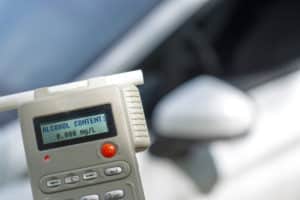Can I Get a DWI under the Legal Limit in New Jersey?

Can I be Charged with DUI under .08 BAC in NJ?
The legal limit for DWI in New Jersey is 0.08%. Specifically, New Jersey DUI law, found in section N.J.S.A. 39:4-50, makes it an offense to operate “a motor vehicle while under the influence of intoxicating liquor, narcotic, hallucinogenic or habit-producing drug,” or to operate a “motor vehicle with a blood alcohol concentration of 0.08% or more.” Having a blood alcohol concentration (BAC) of .08% or more is proof of what is known as per se impairment. However, you can be charged with a DWI if your BAC is less than .08%. In fact, anyone can be charged with a DUI if the police can show that the person’s ability to drive was impaired by any substance.
What is Impairment?
Impairment means that a person’s mental or physical capacities were dulled or not operating as required. Alcohol and other substances impact your central nervous system, thereby impacting your ability to drive. For example, reaction times may be slower than usual, your ability to focus is diminished, and your attention to the road is not as it should be. The alleged impairment may be detected by police in many ways.
How is DWI Impairment Detected by Police?
Police are trained to spot someone who may be driving while impaired. Most often, the officer observes a traffic violation committed by the suspected drunk driver. The person may swerve over the line, make an illegal turn, fail to maintain a safe distance from another vehicle, or be traveling too fast or too slow. An officer can pull a driver over for any infraction of the motor vehicle code, however slight. Once pulled over, the officer will look for signs of impairment.
He will ask you for your name and credentials and attempt to make small talk. He is indeed seeking the information asked, but he is also observing how you respond. For example, does your breath smell like alcohol? Is your speech slow and slurred? Are your eyes bloodshot and watery? If the officer believes that you might be impaired, he will have you perform field sobriety tests.
Field sobriety tests are physical and verbal tests used by officers to detect impairment. The walk and turn test, finger to nose, and one leg stand test are common field tests when an officer is investigating a driver for DWI. The officer will use field sobriety tests, take you back to the station for a breathalyzer test, and possibly request an observational exam performed by a drug recognition expert (DRE) to make a determination as to whether you were driving impaired. If you are charged with a DUI, the officer will testify in court as to the above information. He will tell the court that based on his training and experience, he believes you were driving under the influence of alcohol or another substance. However, there are things that can be done to fight the claim.
Can I Fight a DWI below the Limit in New Jersey?
A DUI that is not proven by a blood alcohol concentration of .08 or more can be successfully dismissed in court. For example, our attorneys routinely challenge the legality of the initial stop and the tests used to arrive at the officer’s findings. Further, when we can invalidate the sufficiency of the Alcotest device itself, the calibration, or its operation, it becomes a distinct possibility that and that in your case, we can prove there is no evidence of impairment. The field sobriety tests are often videoed and can be challenged as well. If the Motor Vehicle Recording (MVR) does not show the tests, we can often hear what you say and how you sound when speaking to the officer. The officers report may not match what actually happened, in which case their observations and testimony are not nearly as effective when a prosecutor is attempting to convict you of DWI.
My DUI Reading was Lower than the Limit, Who Can Help with my Case in NJ?
If you have been arrested for a DWI under the legal limit in New Jersey, contact our attorneys today for the help you need. Whether you reading was just below .08 or barely over the limit, we will leave no stone unturned when fighting your case. Contact us at (201)-556-1570 for immediate assistance. Our New Jersey DUI defense lawyers provide no-cost, no-obligation consultations. We can be reached anytime to discuss your specific situation and answer your questions.

